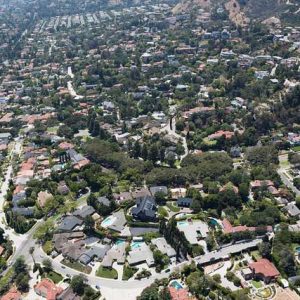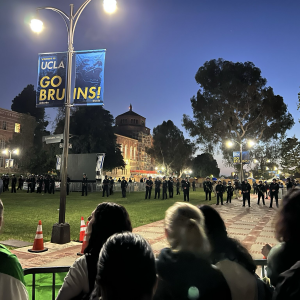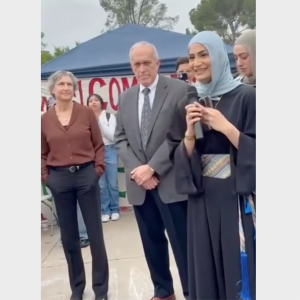 View Winners →
View Winners → Forecast Didn’t Rain on Pasadena Mayor’s State of The City Address
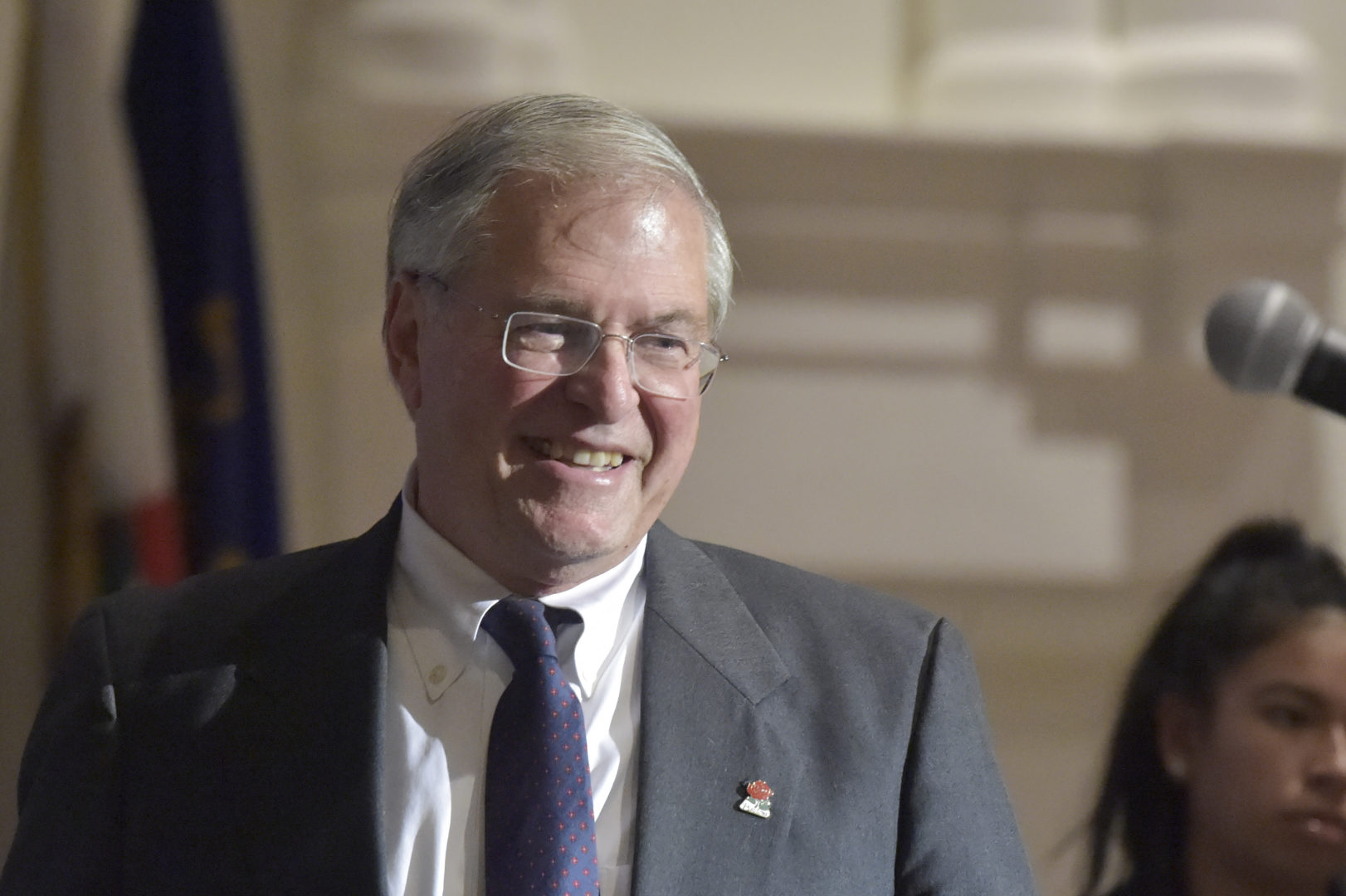
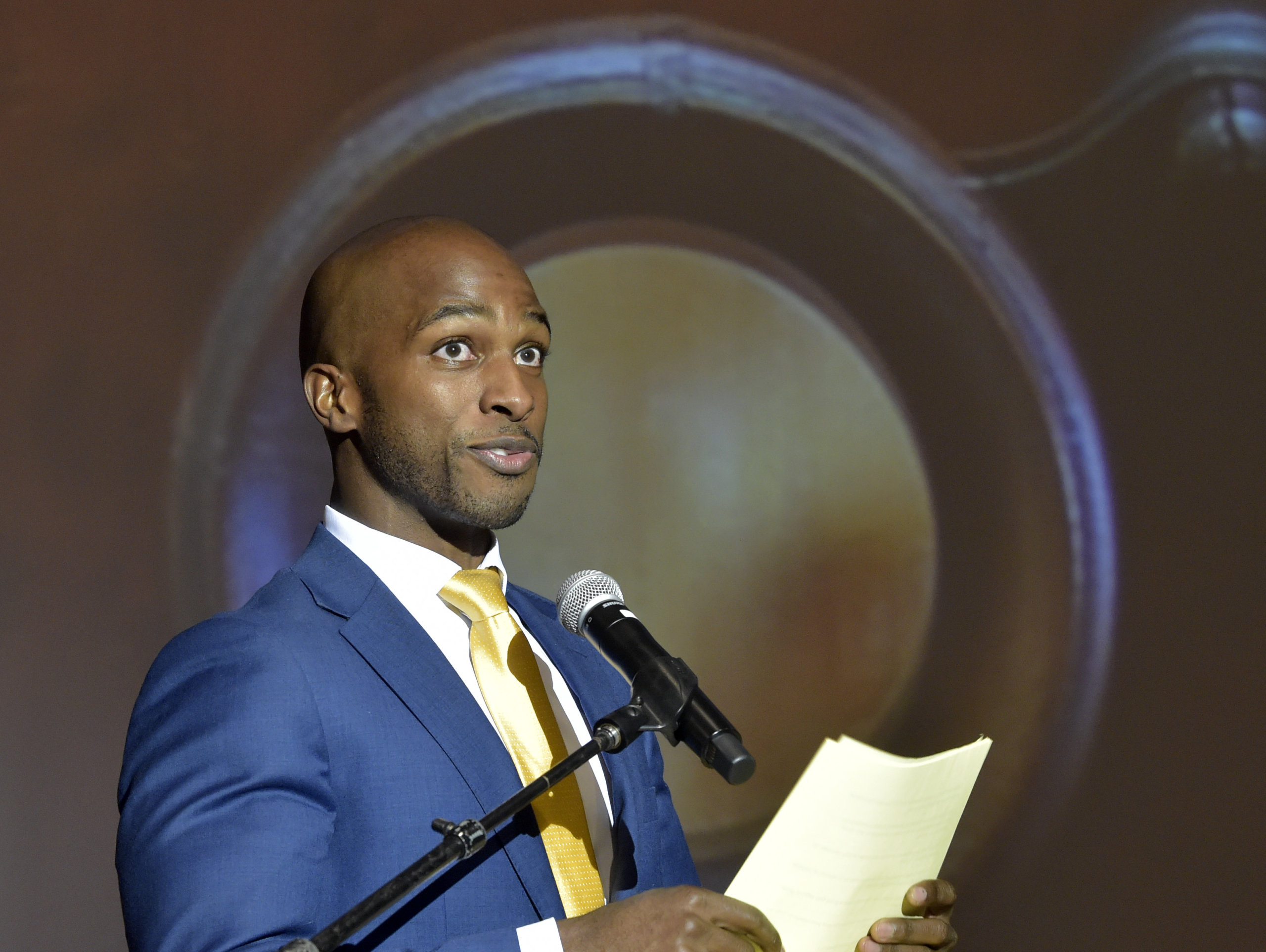
Vice Mayor Tyron Hampton almost stole the show’s spotlight from Mayor Terry Tornek Thursday night. – Photo by Terry Miller / Beacon Media News
Despite claims the city is in good shape, CALPERS, cannabis and homelessness continue to challenge conventional wisdom
By Terry Miller
While the turnout for the State of the City address Thursday was notably less than expected, the expected rains didn’t deter many Pasadena residents and city officials from attending the mayor’s 5th annual speech.
The actual speech didn’t start on time, as often is the case, but this year Vice Mayor Tyron Hampton’s introduction and diatribe was perhaps a little protracted as he introduced just about every official or representative in the auditorium. In fact, he almost stole the show with his wit and positive Mustang repartee.
Each year, the mayor chooses a PUSD facility in which to host the event. This year, it was John Muir’s new auditorium.
The City Charter requires that in January of each year, the mayor present a “thematic budget message” for the stated purpose of receiving and considering public suggestions and comments on the city budget prior to its preparation and ultimate approval by the City Council. For the past four years Tornek devoted most of his State of the City speech to finances.
Tornek thanked Vice Mayor Hampton and acknowledged that “he was a tough act to follow.”
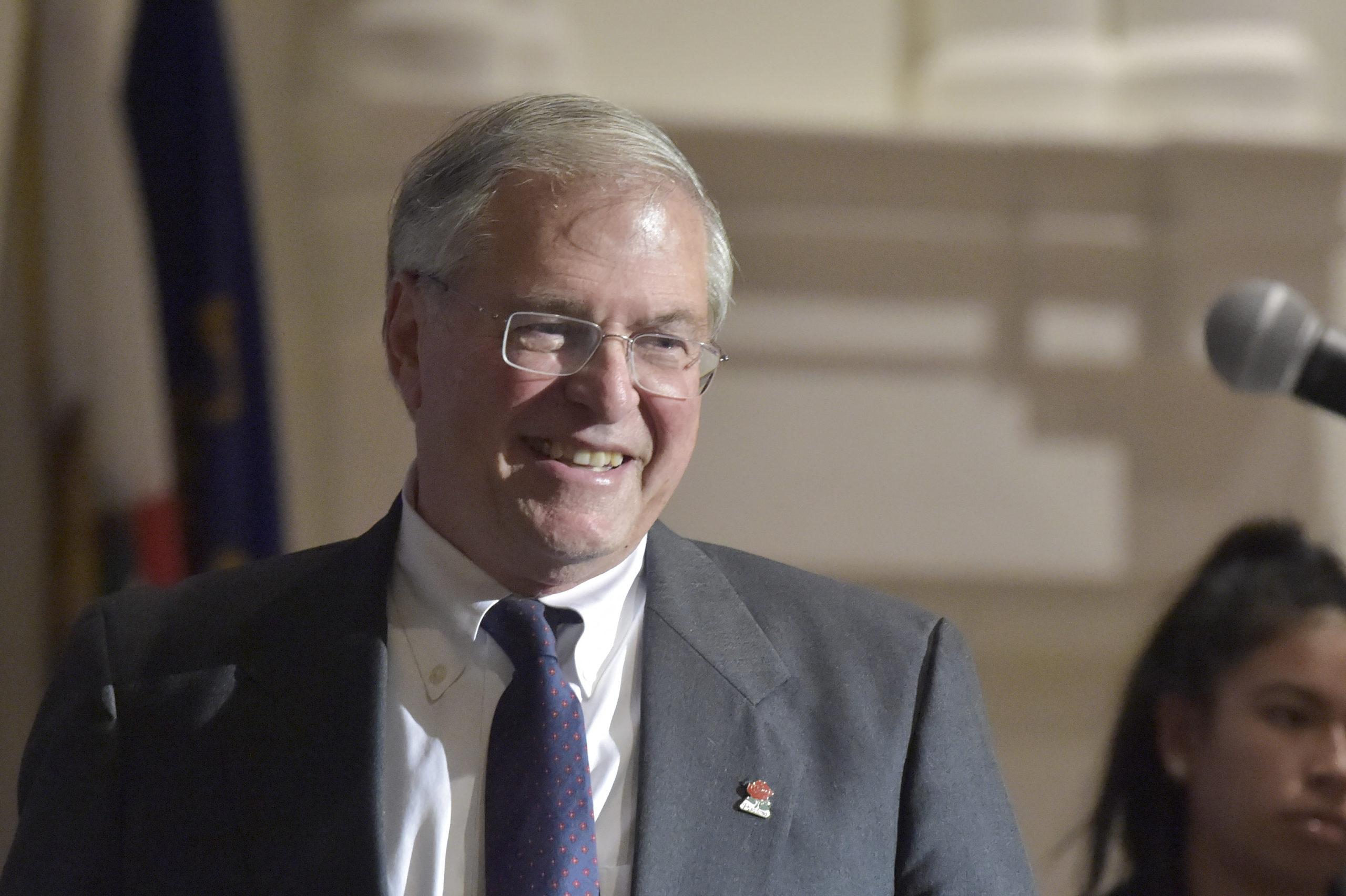
Mayor Tornek takes to the stage after Vice Mayor Hampton’s speech. – Photo by Terry Miller / Beacon Media News
The mayor started off the evening addressing Measures I and J, and what a positive impact on the city these new measures have already had on the city.
“I have provided our residents with a background on how we pay for city services, alerted everyone that the day was approaching when we could not rely on our sources of revenue to adequately pay our bills, and therefore proposed a 0.75% sales tax increase to the voters. Measures I and J, which passed overwhelmingly in November 2018, allowed us to maintain city services without cuts and begin to invest in our infrastructure.
While homelessness is the most pressing problem facing Pasadena, Tornek said “our homeless count is down 20%, there are still 300-plus people sleeping on Pasadena’s streets every night and that is simply wrong. We will continue to work with our nonprofit partners and the County to build additional permanent supportive housing and other facilities to drive this number down further.”
Claiming the city’s state is good, Mayor Tornek stressed that the police department is “in the midst of reorganizing his department with a renewed commitment to community policing and progressive policies to minimize use of force and ensure that all of our residents can rely on equitable treatment.”
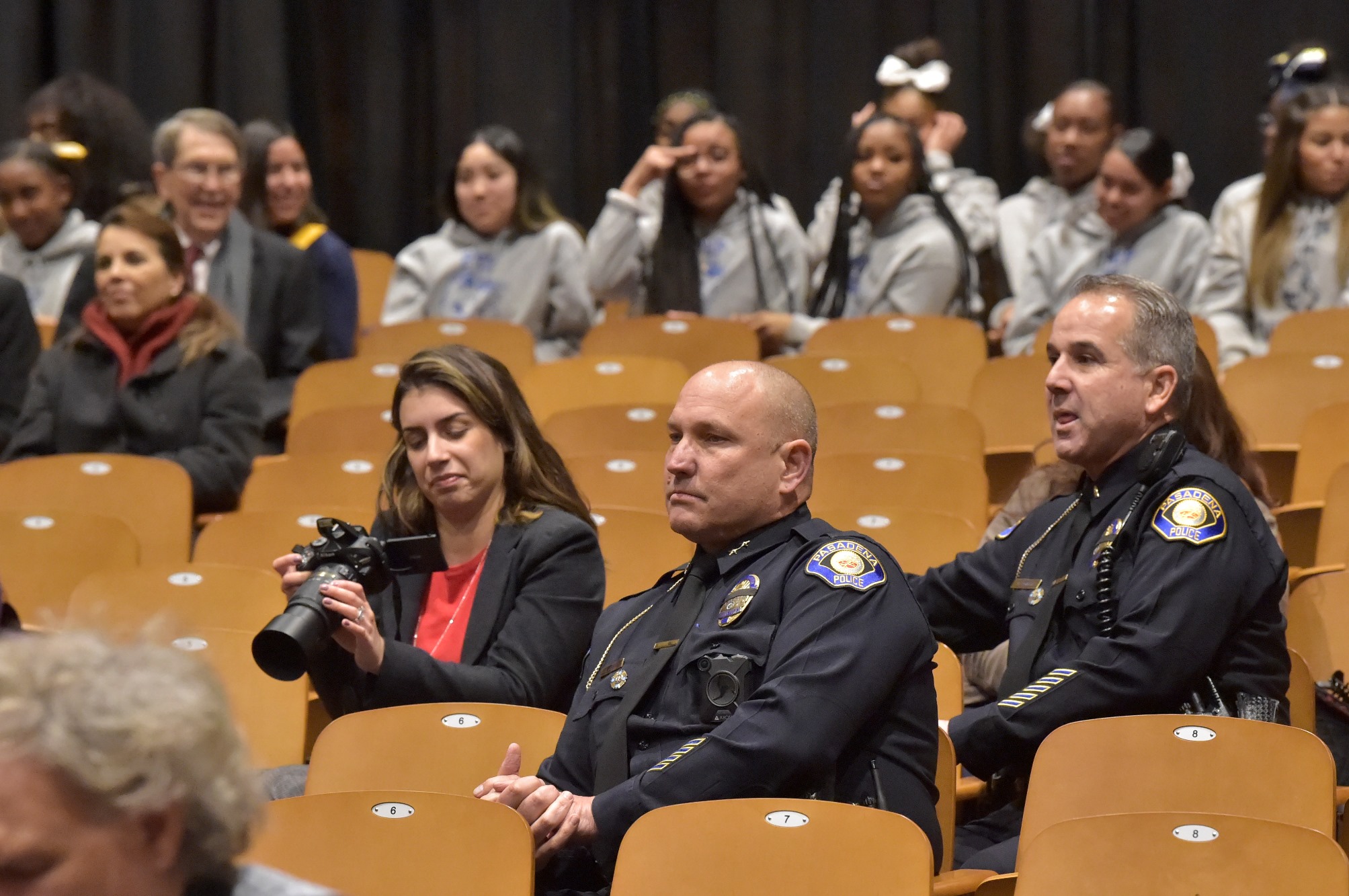
A sparse audience included former Mayor Bill Bogaard seated in the rear of the auditorium as well as many Pasadena police officers. – Photo by Terry Miller / Beacon Media News
However, one contentious issue on many people’s minds Thursday was how the city has handled the cannabis controversy — particularly over the permitting process. Tornek admitted that it has been complicated. “It has been complicated, controversial litigious and has devoured far more staff time than we would like, but we hope that some retail stores will be operational this year.”
The mayor also added that “New development and rising property values will continue to be our primary source of revenue and revenue gains.”
The city’s contribution to the employee retirement system — CalPERS — continues to take a growing bite out of the budget, from $33 million in 2011 to $78 million in 2030, and has received a lot of attention. Viewed another way, this year, general fund payments to CalPERS will be 11.9% of the general fund budget. This compares favorably to Glendale at 18.2%. Pasadena is projected to top out in fiscal year 2024 at 14.3% then drop back down to 13% in 2030 while Sacramento is projected to be at 18%, Vallejo at 23.7%. As newer employees with modified benefits and contributions represent a larger proportion of the workforce, the pension bite begins to abate.
Tornek continued, “There has also been a lot of attention paid to city reserves which are now greater than pre-recession levels. We have accomplished this by balancing our Budgets, eliminating some staff positions and adding savings generated by one time payments.
“Additionally, starting in June, 2017 the City Council began funding allocated $12 million to a special Trust account for future pension and other post-employment benefit obligations which now stands at $13.5 million.”
The mayor emphasized the fact that the city budget will always be under pressure from a desire to do more worthy things than it can afford to do. “We have forecasted future revenues conservatively and there are several things that could have a big positive impact on our revenue. For example, additional hotels, significant tax revenue from on-line sales, and restored Federal or State funding. These could bend the revenue curve up in a meaningful way.”
The addresses’ section on finances closed with “We added $5 million to our General Liability fund against required higher insurance deductibles; we made a $3 million-plus contribution to the FPRS unfunded liability and we funded a new $3.9 computer-aided dispatch system for the Police Department. I think that is the best way to spend available dollars and I hope that the public and ultimately the City Council will agree.”
With State legislation now confirming the demise of the connection between the 710 and the 210 freeways, Pasadena will move ahead with a series of projects that will, reportedly, enhance transportation throughout the region and actually improve traffic flow in Pasadena.
METRO has increased the allocation of funds to build a grade separation of the Gold Line and California Boulevard to $230 million. The project will require much public discussion, careful planning, and sensitive design. But Tornek believes “that the improvements in circulation and improved access to Huntington Memorial Hospital will make the expense and short term disruption worthwhile.
“Beyond immediate improvements, we can also begin to address in earnest the future of the terrible ditch inflicted on our city in anticipation of the Freeway project.”
Noteworthy development projects highlighted by the mayor included:
- Changes underway on the campus of what was formerly William Carey University in north Pasadena that will soon be EF prep school for 1,000 foreign high school students.
- Fuller’s decision to remain in Pasadena will mean less change on their campus.
- The new Kaiser Medical school beginning operation this year.
- Construction continuing on the largest development project in the City’s history on the Parsons campus in Old Pasadena.













































